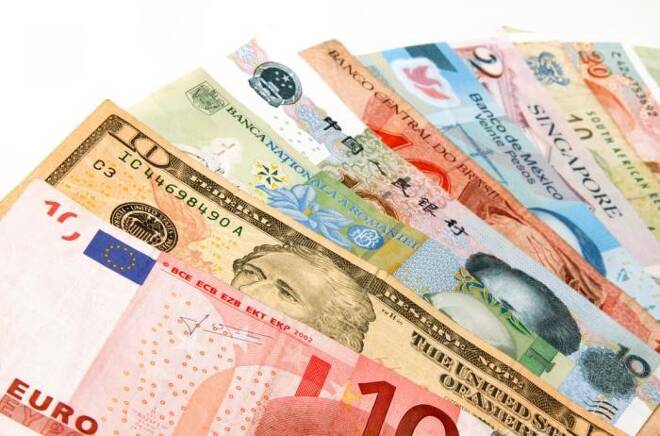Advertisement
Advertisement
How to Manage the Foreign Currency Aspect of Your International Investments
By:
If you own a large, well-diversified investment portfolio that includes domestic and international stocks, global government bonds, emerging markets
If you own a large, well-diversified investment portfolio that includes domestic and international stocks, global government bonds, emerging markets securities and commodities, then you face the risk of adverse currency movements for your overseas investment exposure. For example, if you are based in the US, and you hold emerging markets stocks or a set of European government bonds, then your return on those investments will be affected by the movements of the foreign currencies, that these securities are denominated in, versus the US dollar. However, not only will your portfolio be affected by big movements in the foreign currencies, but also, buying and selling international securities will incur a higher fee than trading domestic securities. Let’s look at this in more detail.
Buying and selling international securities
Holding international securities in your portfolio is a great way to diversify and, also, to increase long-term portfolio returns. However, the added cost of purchasing and selling foreign securities need to be taken into account when building your investment portfolio. The way it normally works, when you buy securities in a foreign currency, is that your broker will first convert the amount it will cost you to purchase the foreign securities into the foreign currency (usually using the broker’s banking partner) and that foreign currency then gets used to purchase the securities in the foreign market. The issue with that is that your broker will most likely not receive the best FX rate in the market for this transaction, as they simple execute the currency trade with their exclusive banking partner.
Hence, it is important for you as the investor to know that there are also other ways you can use to receive better currency exchange rates, so that the transaction costs for your foreign securities purchases are less. The way to reduce your foreign securities transaction fees is by using the services of commercial FX companies. Through a commercial FX company you are able to exchange your domestic currency into to a foreign currency, say the US dollar into the euro, at the best possible EUR/USD rate in the market. Then, you can place the euros back into your brokerage account and use them to purchase euro-denominated stocks and bonds. This way you will reduce overall transaction costs, thereby generating higher portfolio returns long-term.
Hedging your portfolio’s currency risk
Once, you have managed to reduce your international securities transaction costs by using cheaper currency exchange solutions, you need to decide whether you want to hedge your portfolio’s embedded currency risk or not. You are in no way required to hedge your foreign currency risk, as you can also profit if the foreign currencies you are exposed to appreciate against your domestic currency.
However, if you want to reduce portfolio volatility, and want piece of mind from knowing that currency risk is not an issue for your portfolio, then hedging your currency exposure using FX forward contracts is the right strategy. For example, you could purchase a FX forward contract to hedge your GBP 25,000 exposure to UK stocks, which you intend to sell in six months time, by agreeing on the currency exchange rate today for which you will exchange the GBP 25,000 back into USD in six months time. That way, if GBP/USD weakens, your UK stock investment returns will not be negatively affected as you have completely hedged out your currency risk for this particular investment. Commercial FX companies can offer you this service, as they provide the same currency hedging tools that banks offer to large multinational corporations to individuals and SMEs.
About the Author
Guestauthor
Advertisement
